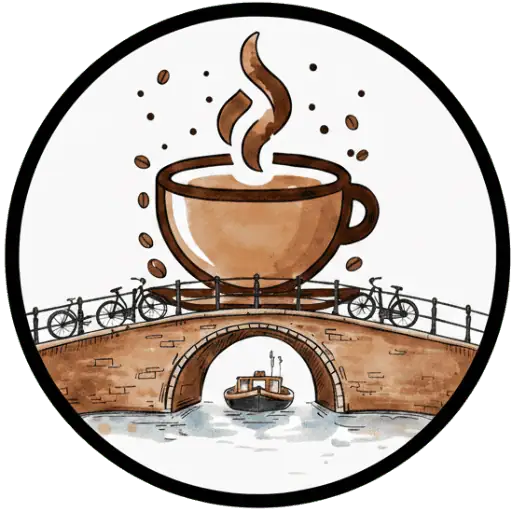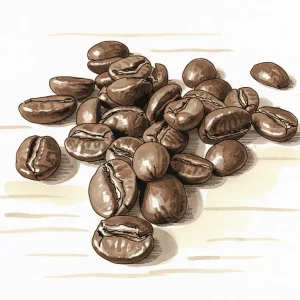Blue’s Coffee
Blue’s Coffee grew from a blue garden shed in Ugchelen into a certified specialty roastery. With sensory control, direct trade, and a Probat P12, the roaster delivers fresh beans with rich aromas daily to households, cafés, and sports clubs across the Netherlands.
Blue’s Coffee Beans
Showing all 10 results
De goedkoopste prijzen per 1 kg worden weergegeven
-
Blue’s Black Label
€ 23,00 -
Blue’s White Label
€ 92,00 -
Brazil Fazenda Sequóia
€ 102,00 -
Colombia El Dorado
€ 106,00 -
Colombia Huila cafeïnevrij
€ 100,00 -
Costa Rica Los Campos
€ 119,00 -
Ethiopia Yirgacheffe Reko Community
€ 118,00 -
Honduras Johelyta farm
€ 106,00 -
India Malabar AA Aspinwall
€ 102,00 -
Rwanda Nyamasheke Hills
€ 104,00
More About Blue’s Coffee
Small shed, big impact
Blue’s Coffee started in 2018 in a blue garden shed in Ugchelen. Michiel and Marike roasted only one kilo at a time, but soon there was more coffee than they could drink themselves. Villagers received the first little bags, and the micro-brand was born. Today the company supplies freshly roasted beans to households, cafés, and sports clubs throughout the Netherlands.
Growth without losing the craft
A Probat roaster with twenty kilos per hour arrived in 2020, followed by a leap to a Probat P12 in 2025. As a result, Blue’s can now process fifty kilos per hour, while every batch is still monitored by eye, nose, and ear. The roaster is SCA-certified and cups every roast before it goes out the door.
Still, the blue flag at Hoenderloseweg 165 remains the real signal, when the flag is flying, roasting is happening and visitors are welcome. That open approach keeps the Veluwe roots alive, even as volume rises.
Sensory-driven roasting method
Blue’s uses an artisanal, sensory approach. Temperature profiles are set with precision, but the final word comes from color, scent, and the bean’s first crack. Smaller batches, multiple times a week, ensure orders ship immediately after roasting. This way every bag arrives with maximum aromatics and a full crema.
Blends and single origins
The lineup always includes at least ten single origins in the specialty category. To simplify the choice there are two house blends and a few standout singles:
- Blue’s Black Label blends Brazil, Ethiopia and India into a robust espresso with cocoa and spice notes.
- Blue’s White Label mixes Costa Rica, Brazil and India into a gentle filter coffee with stone fruit, caramel and nuts.
- India Monsooned Malabar AA is the "odd one out", exposed to monsoon winds for months and known for an almost spicy, low acidity.
- Blue’s White Label mixes Costa Rica, Brazil and India into a gentle filter coffee with stone fruit, caramel and nuts.
- India Monsooned Malabar AA is the "odd one out", exposed to monsoon winds for months and known for an almost spicy, low acidity.
Each origin gets its own roast profile. As a result, a Yirgacheffe tastes floral and citrus-fresh, while a Brazilian Santos stays creamy and full of chocolate.
Playful limited editions
Every season brings something new. The Christmas blend and the playful "One Night Stand" coffee appear in limited runs and disappear just as quickly. The sample pack typically includes two of the latest varieties, so customers continually discover something surprising.
Quality and fair trade
Blue’s buys beans largely via direct trade and pays farmers a fair premium. That transparency provides traceability and encourages sustainable cultivation. Only highly rated Arabica enters the warehouse, forming the basis for consistent quality.
Flavor control doesn't stop at roasting. Every lot is re-evaluated before shipping, and advice on grind and brew method follows via WhatsApp when needed. That way the taste at home stays as clear as at the Veluwe tasting bar.
Community as a strength
Visitors see the flame beneath the drum and smell fresh beans while the roaster explains how a lightly fruity roast differs from a dark espresso. At events, Blue’s sets up a mobile espresso bar, so weddings and corporate parties can enjoy latte art instead of lukewarm percolator coffee.
Local sports clubs now serve Blue’s, raising the region’s everyday coffee standard. All of this with a single officially registered sole proprietorship and a phone number that leads straight to the roaster.
Looking ahead
With the new Probat P12, the roastery can serve larger business clients, including equipment, maintenance, and barista training. At the same time, free delivery within five kilometers and free shipping across the Netherlands on orders over fifty euros remain in place.
New harvests from emerging regions are on the radar, spurred by origin trips like the one to Costa Rica in 2024. So expect more micro-lots, experimental processing methods, and perhaps even carbon-neutral roasting. Growing without letting go of the craft or the fair-trade ethos remains the goal.
Conclusion
A blue garden shed on the edge of the Veluwe forest proves that great coffee doesn’t have to come from a factory. Every bag of Blue’s tells a story of music, craftsmanship, and fair trade, and puts a rich, aromatic full stop on many a coffee lover’s day.


